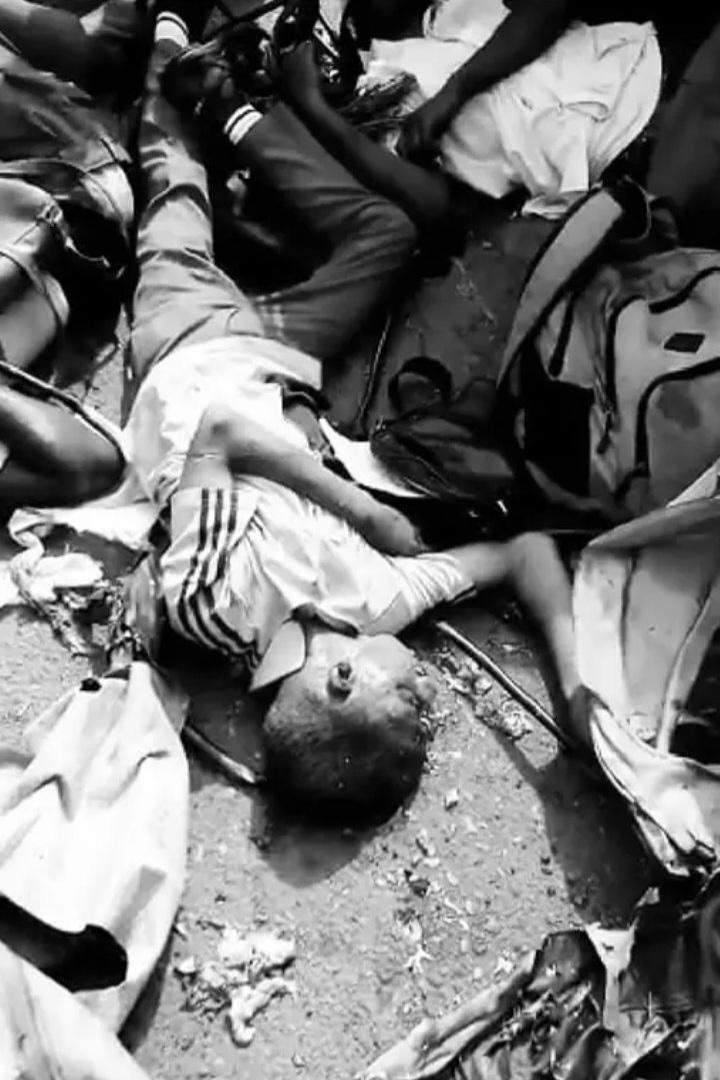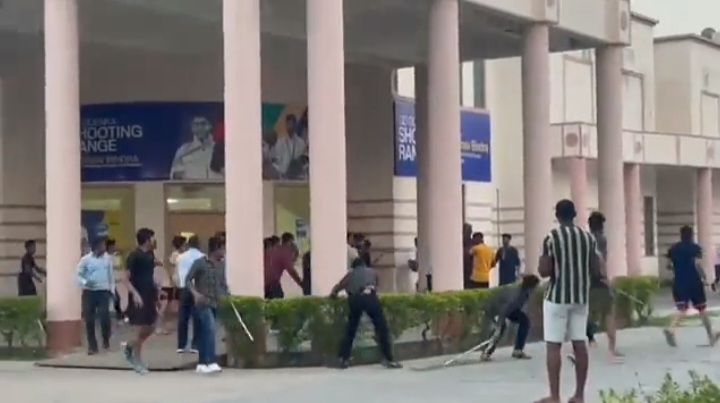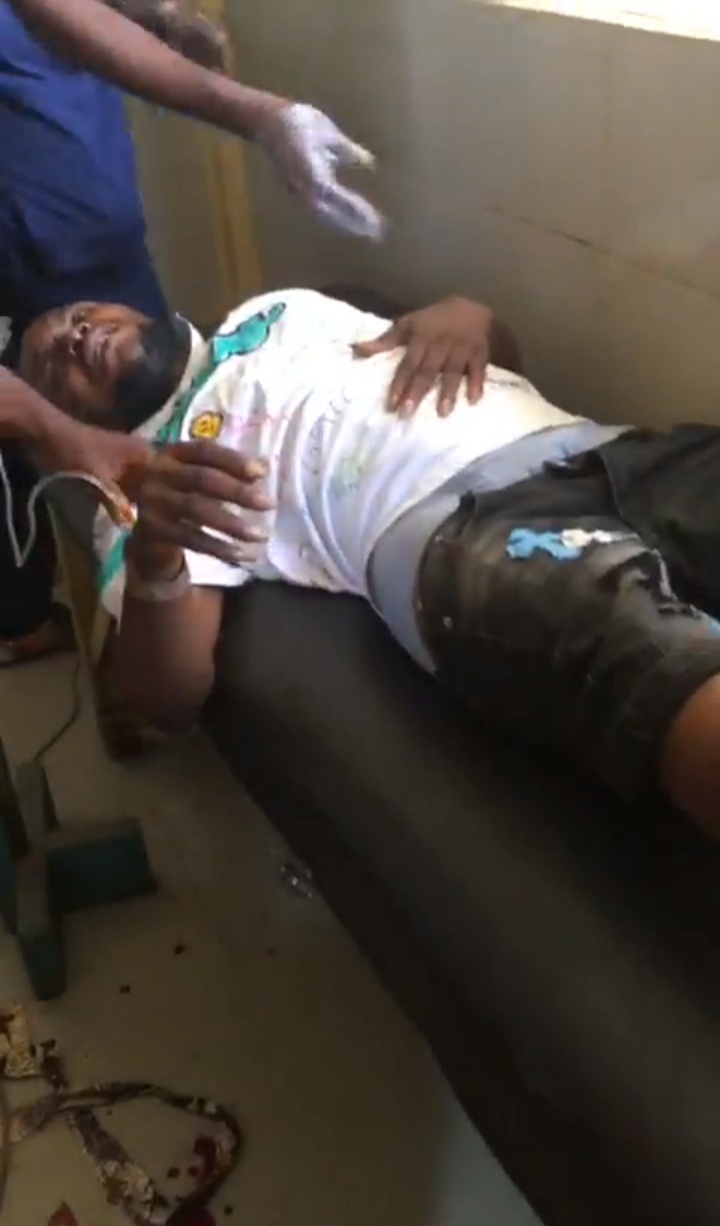CRIME
Gang-Rape: Four Hanged Over Rape in India
Following the gang-raping to death of a physiotherapy student in India, the rapists has been hanged after seven years at 5.30 Friday morning in Tihar jail in New Delhi.

Following the gang-raping to death of a physiotherapy student in India, the rapists has been hanged after seven years at 5.30 Friday morning in Tihar jail in New Delhi.
The Indian Express newspaper said the men Mukesh (31), Pawan Gupta (24), Vinay Sharma (25) and Akshay Kumar Singh (33), were hanged hours after their petitions were rejected by the Supreme Court, Delhi High Court and lower court.
At around 4.30 am, a a three-judge bench of the Supreme Court dismissed the petition of death row convict Pawan Gupta filed against rejection of his second mercy plea by the President.
The plea had sought court’s directions declaring that the rejection of the second mercy petition by the President on March 19 as unconstitutional and bad in law.
Asha Devi, the mother of the gang-rape victim, Jyoti Singh, thanked the judiciary and government after the four convicts were hanged.
“Finally they have been hanged, it was a long struggle. Today, we got justice, this day is dedicated to the daughters of the country. I thank the judiciary and government,” she tells ANI.
The executed four men gang-raped and murdered the student on a Delhi bus in 2012, sparking huge nationwide protests and international revulsion.
The brutal attack sparked weeks of demonstrations and shone a spotlight on the alarming rates of sexual violence and the plight of women in India.

Singh, 23, was returning home from the cinema with a male friend on the evening of December 16, 2012 when they boarded a Delhi bus, thinking it would take them home.
Five men and a 17-year-old boy had other, darker ideas.
They knocked the friend unconscious and dragged Singh to the back of the bus and raped and tortured her with a metal rod.
The physiotherapy student and the friend were then dumped on the road. Singh died 13 days later in a Singapore hospital from massive internal injuries.
“A decent girl won’t roam about at 9 pm,” one of the perpetrators later told a BBC documentary that was banned in India.
Nearly 34,000 rapes were reported in India in 2018, according to official data. This is considered the tip of the iceberg, with many more too scared to come forward.
But Singh’s ordeal, and the fact that she was part of a generation of young women trying to break out of a still very traditional society, struck a chord.
“It was like the bursting of a dam,” said Kavita Krishnan, a women’s activist who took part in the huge protests.
“It was not restricted to seeking revenge. Women said they do not want to trade their freedom for safety… There was a social awakening of society,” she told AFP before the hangings.

It led to tougher punishments for rapists including the death penalty for repeat rape offenders.
Singh, nicknamed “Nirbhaya” (“fearless”), survived long enough to identify her attackers and all six were arrested. Four were convicted in 2013.
A fifth, the suspected ringleader, was found dead in jail in a suspected suicide, while the 17-year-old spent three years in a juvenile detention centre.
The executions may spark further celebrations on Friday despite government advice to avoid crowds because of coronavirus, while politicians will likely rush to express their satisfaction.
But for Krishnan, this masks the government’s continued failure to provide justice and improve safety for women.
Almost 150,000 rape cases are awaiting trial in India’s dysfunctional criminal justice system.
The government is “trying to fix the public gaze on the gallows to divert attention away from what it has failed to do,” Krishnan said.
Source: PMExpress
For publication of your news content, articles, videos or any other news worthy materials, please send to newsleverage1@gmail.com. For more enquiry, please call +234-706-806-4347 or whatsapp +234-706-806-4347. To place an advert, please call 07068064347.
-

 CRIME1 week ago
CRIME1 week agoCable Thief Electrocuted at Omuma Road
-

 METRO4 weeks ago
METRO4 weeks agoDebtors Rejoice Over Death of Popular Money Lender, ‘Old Warri’
-

 NATIONAL NEWS3 weeks ago
NATIONAL NEWS3 weeks agoAdeyanju Reveals Who Funds Atiku’s Presidential Bid
-

 METRO3 weeks ago
METRO3 weeks agoAisha Yesufu Speaks on Soldiers’ Lamentation After Presidential Gifts to D’Tigress, Super Falcons
-

 CRIME3 weeks ago
CRIME3 weeks agoAmbush! Newlywed Man, Friend Brutally Murdered




